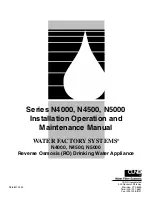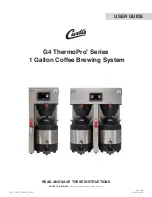
37
GUIDE TO TIG WELDING
Before starting any welding activity ensure that you have suitable eye protection and
protective clothing. Also take the necessary steps to protect any persons within the welding
area.
TIG welding electrodes
TIG welding electrodes are a ‘non consumable’ as it is not melted into the weld pool and
great care should be taken not to let the electrode contact the welding pool to avoid
weld contamination. This would be referred to as tungsten inclusion and may result in
weld failure.
Electrodes will often contain small quantities of metallic oxides which can offer the
following benefits:
• Assist in arc starting
• Improve current carrying capacity of the electrode
• Reduce the risk of weld contamination
• Increase electrode life
• Increase arc stability
Oxides used are primarily zirconium, thorium, lanthanum or cerium. These are added
usually 1% - 4%.
Tungsten Electrode Colour Chart - DC
Tungsten Electrode Current Ranges
Tungsten electrode preparation - DC
When welding at low current the electrode
can be ground to a point. At higher current
a small flat on the end of the electrode is
preferable as this helps with arc stability.
Electrode grinding
It is important when grinding the electrode to take all necessary precautions such as wearing eye
protection and ensuring adequate protection against breathing in any grinding dust.
Tungsten electrodes should always be ground lengthwise
(as shown) and not in a radial operation. Electrodes
ground in a radial operation tend to contribute to arc
wander due to the arc transfer from the grinding pattern.
Always use a grinder solely for grinding electrodes to
avoid contamination.
Welding Mode
Tungsten Type
Colour
DC or AC/DC
Ceriated 2%
Grey
DC or AC/DC
Lanthanated 1%
Black
DC or AC/DC
Lanthanated 1.5%
Gold
DC or AC/DC
Lanthanated 2%
Blue
DC
Thoriated 1%
Yellow
DC
Thoriated 2%
Red
Tungsten Electrode Size
DC Current Amp
1.0mm
30 - 60
1.6mm
60 - 115
2.4mm
100 - 165
3.2mm
135 - 200
4.0mm
190 - 280
4.8mm
250 - 340












































